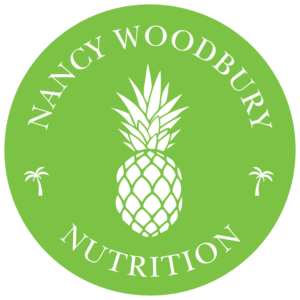February is American Heart Month—a perfect opportunity to raise awareness of cardiovascular disease (CVD), which includes coronary artery disease, stroke, hypertension, congestive heart failure and cardiac arrhythmias. Globally, CVD is the leading cause of death. Risk factors include obesity, physical inactivity, smoking, poor nutrition, cholesterol, high blood pressure and diabetes. Fortunately, you can reduce your risk of heart disease by eating a whole food, plant-based diet. Examine the evidence: Read more

Photo: Williams-Sonoma; Steel Grill Fry Pan
Now that you know about the association between grilled meat and cancer, let’s talk about plant-based ways to get your grill on for better health. Grilling vegetables is a great option for upping your intake of healthy antioxidants, vitamins, minerals and fiber.
Grilling brings out the natural sweetness in vegetables such as red peppers, carrots and onions. Marinate vegetables with olive oil, citrus juice or balsamic vinegar and seasonings to enhance the flavor even more.

Image courtesy of Apolonia at FreeDigitalPhotos.net
When celebrating outside in the heat, be sure to stay hydrated with a refreshing drink like this tasty Pomegranate Mint Sparkler. It’s a mocktail to remember and repeat!
Make pomegranate ice cubes the day before the party by filling an ice cube tray with water and pomegranate seeds, also known as arils, then freezing overnight. Place the ice cubes in a glass, and pour in two parts sparkling water and one part 100% pure pomegranate juice. Garnish with a sprig of mint leaves and a twist of lemon.
Drink and enjoy the benefits of the powerful antioxidants in pomegranate juice and the tummy-taming properties of fresh mint!

Image courtesy of phasinphoto at FreeDigitalPhotos.net
Staying hydrated in the heat and humidity is vital, but choosing a healthy drink to quench your thirst can sometimes be tricky. Stroll down the beverage aisle of any supermarket and you’ll see hundreds of bottled drinks with eye-catching labels claiming superior taste, health and performance benefits. But before you fill your shopping cart, here are some facts you should consider: Read more

Image courtesy of amenic181 at freedigitalphotos.net
In honor of Valentine’s Day last weekend, I wrote about food synergy and provided examples of foods that pair well together to increase the absorption of key nutrients. So this week, it seems logical to highlight foods that are not so compatible together and inhibit nutrient absorption. This can happen when the phytochemicals and minerals contained in foods bind to each other to form a complex molecule that we cannot digest and absorb.
Many factors influence nutrient absorption: the food source, chronic health conditions such as celiac disease that affect the intestinal cells where many nutrients are absorbed, and your body’s current need for a particular nutrient. For example, you will absorb more iron from the food you eat if you are iron-deficient than if your iron status is normal. When planning meals for optimal nutrition, you should know which foods inhibit nutrient absorption to avoid seating these food frenemies at the same table: Read more
 Valentine’s Day is the perfect occasion to celebrate perfect pairings.
Valentine’s Day is the perfect occasion to celebrate perfect pairings.
When I think of classic Hollywood power couples, these come to mind: Fred and Ginger, Sonny and Cher, Bogie and Bacall. Their mutual attraction made these individual stars bring out the best in each other to shine even more brightly together. It’s all about chemistry.
You might be surprised to learn that power couples also exist in the nutrition world. Food synergy is the term used to describe the chemical attraction between two foods that makes them even more nutritious when consumed together. Just like people, some foods are better on their own. All foods contain vitamins, minerals and phytochemicals that participate in chemical reactions that either increase or decrease absorption of key nutrients in foods at each meal. Read more

